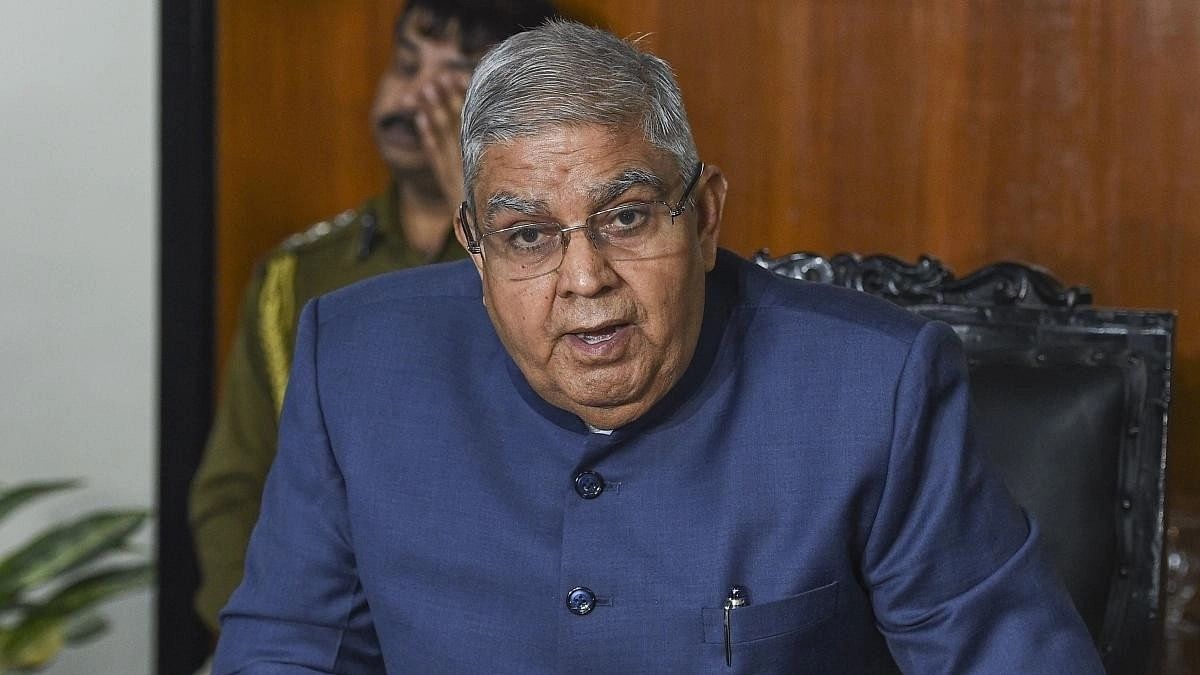
Vice President Jagdeep Dhankhar.
Credit: PTI File Photo
New Delhi: Vice President Jagdeep Dhankhar on Monday lauded the India Meteorological Department (IMD) for issuing timely forecasts of weather events such as cyclones that helped save lives on high seas and contain damage to vessels.
Launching the yearlong 150th anniversary celebrations of IMD, Dhankhar said there was a time when rainfall forecasts issued by the weather office proved to be incorrect, due to lack of scientific progress, but now the predictions were precise, 'down to seconds'.
He said the IMD's impact transcended mere weather forecasts and has emerged as a safety net, protecting national interests and shielding citizens from the wrath of nature.
"From agriculture and healthcare to aviation and energy, its influence is omnipresent, touching the lives of every single citizen - from farmers tilling the land to jawans guarding our borders," Dhankhar said.
The vice president also launched a mobile app of the IMD -- 'Mausam' -- that integrates all services offered by the weather office and unveiled new initiatives such as the Panchayat Mausam Seva, Decision Support System and the National Framework for Climate Services.
The function was attended by Earth Sciences Minister Kiren Rijiju, Earth Sciences Secretary M Ravichandran, IMD Director General Mrutyunjay Mohapatra, former secretaries of the ministry and former directors general of IMD.
"I could see inputs made available by IMD and the Coast Guard, Navy, Air Force acting in tandem with disaster management agencies and ensuring not a single mortality on high seas, hardly any damage to vessels, coastal areas were cleared," Dhankhar said referring to the cyclone tracking services of the weather office.
He said the days of fragmented disaster management were history and now a robust system ensured a predictable mechanism for financing not just response, but mitigation, preparedness, and recovery.
"There was a time when IMD used to predict rains and there were no rains because there was little scientific progress. Now so much is the precision, it is by seconds. We are proud of our scientists," the vice president said.
In a lighter vein, Dhankhar, who is also the Rajya Sabha chairman, said he was looking forward to the day when the IMD could predict the weather conditions in both the Houses of Parliament for the presiding officers.
Earlier, Earth Sciences Minister Rijiju said the IMD has installed 10 doppler weather radars in the western Himalayan region and was planning 11 doppler radars in the eastern Himalayan region to better forecast cloudbursts.
"My ministry is enabling IMD to meet the challenges of cloudburst by augmenting more radars, AWS, and improving the forecasting models. Higher resolution models could be run with the procurement of highpower computing systems," he said.
"During its long period of existence, IMD has been able to mould itself as a world-class national meteorological service that uses the latest technological tools for monitoring predictions and warning of extreme weather and climate events in the country and thereby, helping the nation to build resilience against risk related to disaster and climate change," Rijiju said.